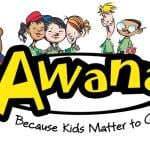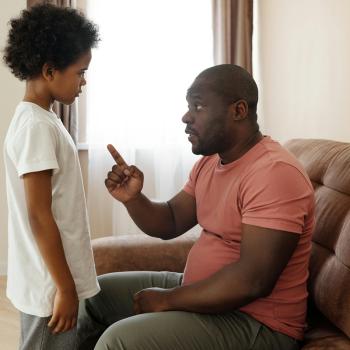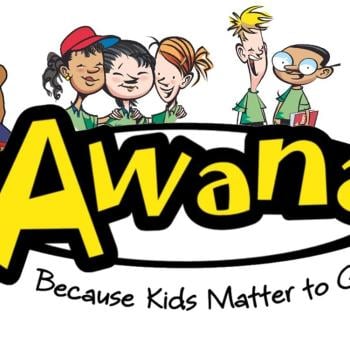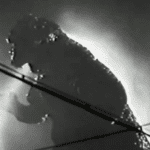Has an overdose touched your community or someone you love? Overdose Awareness Day ends the stigma and saves lives.
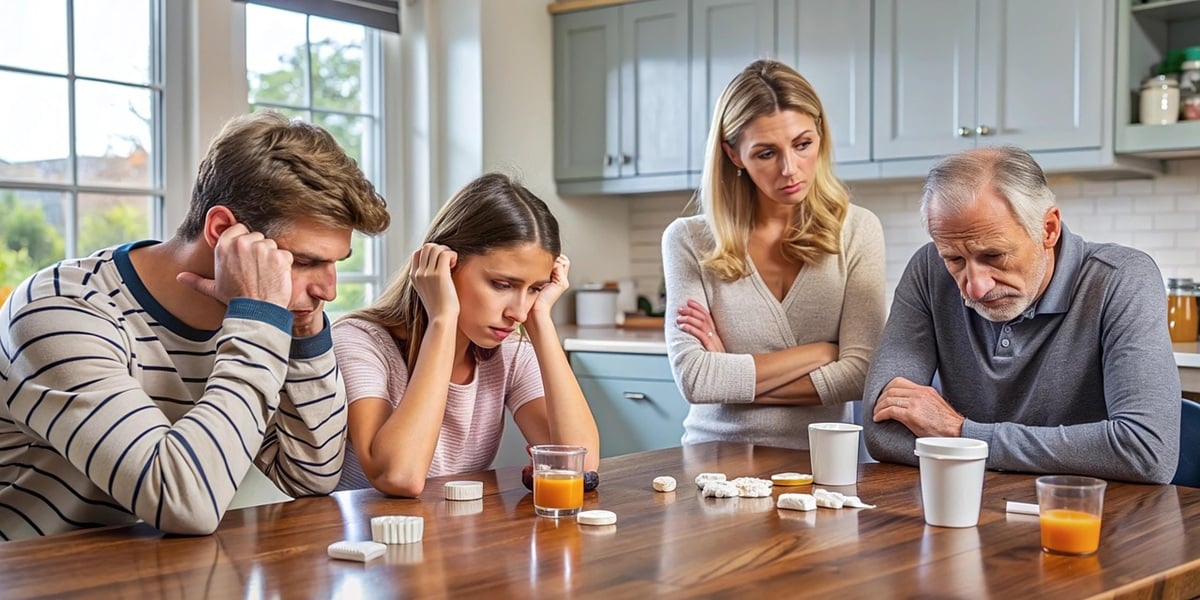
As a pastor, I used to view substance use and its related problems through the black-and-white lens of sin-versus-righteousness. People with addiction just needed Jesus, I thought. If they hadn’t gained victory, they just hadn’t prayed or obeyed enough. When I pivoted to my second career in social services, I came to see things differently.
Overdose Awareness Day
August 31, 2025, is International Overdose Awareness Day. It’s a day to remember those who have died from overdose. It’s a time to wrap our arms around grieving families and let them know they’re not alone. And it’s an opportunity to work against the stigma associated with addiction. This year’s theme, “We are one big family,” hits me hard.
In both of my professions, I’ve walked with people through the struggles of life. I’ve sat with folks without home or hope, with those who were afflicted and addicted. Their struggles were not because they were “bad people.” They were because life had dealt them with more pain than most of us can imagine. Unfortunately, in these cases what started out as a coping mechanism ended up as a crisis multiplier.
The problem is that many churches still talk about addiction primarily in terms of sin.
How Stigma Shows Up in the Church
Christians weaponize scripture against many types of people—including people who use drugs (PWUD). Here are a few “clobber passages” that people use against PWUD:
- 1 Corinthians 6:19 – “Or do you not know that your body is a temple of the Holy Spirit within you, which you have from God, and that you are not your own?” Often, people quote this verse out of context, forgetting that it is not about substance use at all. This verse is about sexual immorality (a topic for another article).
- 1 Peter 5:8 – “Be alert and of sober mind. Your enemy the devil prowls around like a roaring lion looking for someone to devour.” This verse gets tossed out like a judgmental slogan, without any real compassion for why a person might not be sober in the first place. Further, those who quote this verse confuse the word “sober” (as in abstinent) with “sober” (as in level-headed). This verse isn’t really about substance-sobriety at all. It’s about spiritually mature thinking.
- And the phrase “the wages of sin is death (Romans 6:23)” becomes a heartless and flippant perspective on overdose, instead of the message of grace that you get when you read the second part of the verse.
When Christians use the Bible in this way, they violate the unqualified love modeled by Jesus. They use scripture to shame, condemn, and stigmatize PWUD. This keeps their substance use in the shadows, which is the most likely place for overdose to occur.
Addiction Isn’t Sin—It’s a Survival Strategy
In my present work, I’ve learned that substance use is often a coping mechanism. It is a way to numb trauma, manage mental illness, or survive homelessness. PWUD often self-medicate with illicit substances when they can’t get prescription medications that would do the job better.
This may be the case with symptoms of physical pain, developmental disabilities, or many other conditions where legal pharmaceuticals are difficult to obtain. Often, addiction begins with prescription medication gets out of hand. Many people start on these substances legitimately, but develop a dependence along the way. Nobody gets up in the morning and says, “I think I’ll ruin my life.” They use these substances because they work…until they don’t.
Addiction isn’t sin. Yes, it has its consequences, which are sometimes deadly. But when we start calling addiction “sin,” we miss the mark of full understanding and compassion. It’s pain, not pleasure, that causes people to seek these substances.
WWJD for PWUD?
Though it’s trite and outdated, I like to employ the question, “What would Jesus do?” when engaging with people who use drugs. Wen Jesus met people who were hurting, he never started with condemnation. Instead, he led with compassion.
When he met the Samaritan woman at the well (John 4), Jesus did not lecture her about her life choices. Instead, he offered her living water. When he encountered the swindler Zacchaeus (Luke 19), he presented himself as the treasure the man was seeking. Jesus didn’t shame people—he offered hope. And this is what we need to offer those in the grip of addiction—life, not lectures.
What Can Christians Do?
As I’m writing this, my team at work is grieving the loss of yet another client who died of overdose. Thankfully, we have systems and programs in place to help some people with their addiction. But even if you combine all the nonprofit, government, and other entities, we can’t save them all. Our systems just aren’t robust enough to solve the problem. So, what can ordinary Christians do? If we remember that we’re all one big family (in the church and outside of it), what are the best ways to help?
How a Grace-Filled Church Responds
In previous posts on Breathing Space, I’ve tried to articulate how a grace-filled church responds:
- Harm Reduction as Christian Practice: In “Substance Use Harm Reduction: What Would Jesus Do?”, I suggest that harm reduction—like providing fentanyl test strips, Narcan, or clean needles—is akin to putting on a seatbelt: a practical, compassionate step to help people live long enough for real change to occur.
- How Churches Can Act: In “Overdose Awareness Day: How Can Your Church Save Lives?”, I offer concrete actions—Narcan access, referrals to support services, and challenging the righteousness-versus-sin narrative—for saving lives in the here-and-now.
- Decriminalization and Grace: In “Jesus and Drug Decriminalization: Help Instead of Handcuffs”, I proposed that Jesus would favor compassion over criminalization—offering treatment, not jail, calling for restoration over retribution.
- Outreach to the Needy: In “What Jesus Said to the Homeless Man”, I highlight how Jesus never turned away the marginalized; He never responded with “not in my backyard.” People self-medicate when they don’t know where else to turn. Churches must offer refuge, not rejection.
If we’re all one big family, let’s start acting like it. We can begin by educating our congregations instead of arming them with out-of-context scriptures. We can create safe spaces for recovery groups. We can speak honestly about trauma and mental health, preaching that therapy and medical care can be expressions of faith, not signs of weakness. And we can be present with those in addiction—with no exceptions or conditions, without waiting for them to “clean up.”
More Than a Memorial
Around the world and in every nation, addiction and overdose are claiming more lives than ever. International Overdose Awareness Day is more than a memorial. It’s a commitment to changing the way people respond to addiction.
Possibly, you have attended a funeral for someone who died from overdose. If so, you’ve noticed the hushed tones people use when discussing the cause of death, or the substance use disorder that led to their passing. It’s time we end the stigma that keeps people from talking openly about substance use disorder. Because it’s in the silence that suffering is most poignant. And it’s in the stigma that shame abounds.
Instead, let’s offer hope. It’s time to stop gossiping about people’s struggles and choose instead to walk through them together. Since “we are one big family,” let’s act like it. Let’s remember that each of us is a child of God, and worthy of unconditional love.



